It’s one thing to love feeding people – it’s another entirely to care so much about what they eat, that you grow the produce yourself.
Such was her passion for food, that’s exactly what the owner of beloved Thai restaurant Chat Thai has done. It’s changed the ethos of the business, which first opened in Sydney in 1989. Today, there are five eateries, and if you dine at one of those venues, you might be lucky enough to taste the gorgeous organic produce farmed in the Byron Bay hinterland.
To learn more about her desire to feed her own family and her customers with food grown with care, Palisa Anderson of Boon Luck Farm shares her story.
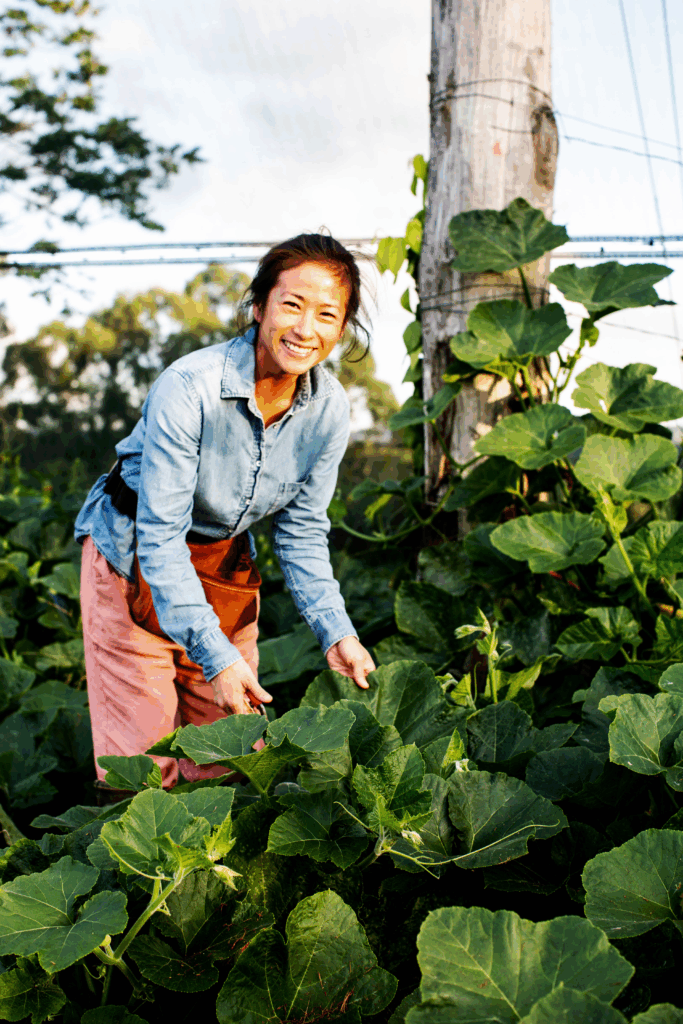
Palisa’s mother started the Chat Thai business, but the family certainly did it tough, working long hours, often living in small confines. As a result, Palisa was always drawn to open spaces and gardens.
“As soon as I’d come home from school, I’d throw my bag in the house and I’d be out there talking to my chrysanthemum,” she laughs.
Palisa often helped her mum pick herbs and learnt how to store them properly. It wasn’t until she was in her late 20s that she came back to join the family business, after living abroad, but she says, once you grow up in that world, it never truly leaves you.
It’s a rabbit hole. Love drives you there first. Then, it’s the constant curiosity of refining your practice.
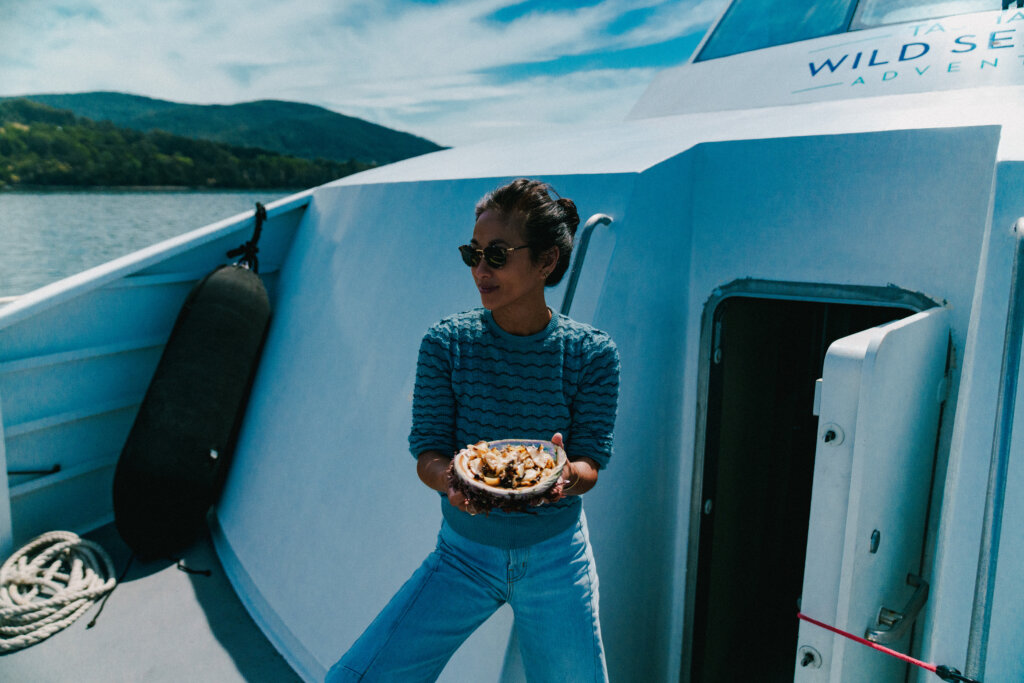
Feeding the world
The restaurateur turned farmer is driven to grow sustainable food that is good for the soil, and a nutritional powerhouse for her family and customers.
“This whole misconception about how we feed our population on earth if we don’t farm in big ag ways. I believe that’s a misconception,” she shares.
Palisa admits the work is physically demanding. Just before this interview she describes being covered in sweat, down to her socks. That is a challenge, as is the mental load. But in her opinion, that’s what makes it so rewarding and meaningful.
You need to be strong. You need such grit and backbone.
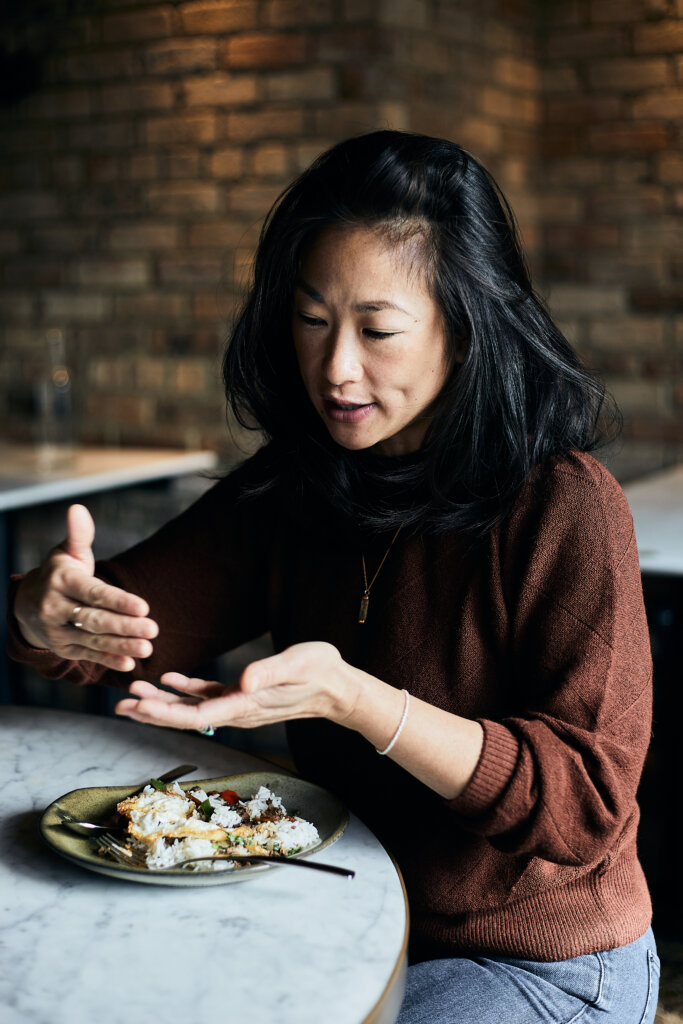
Growing their own produce has really elevated the Chat Thai restaurants. Palisa and her children choose to eat there a lot, and she’s proud of that.
“I see it being plated and there is such a grounded sense of – I grew that, we grew that.”
“I have found meaning in the process. It’s what drives us. It’s really our why.”
Growing their own ingredients has also opened access to specialty Asian vegetable varieties. Boon Luck Farm is proud to produce, spray-free, sustainable, no-till produce.
She’s faced weather extremes and weed explosions but has stuck with her preferred methods. It’s taken many seasons of adding organic matter, planting perennials, along with inter-rows and layers of trees among the vegetables to achieve adequate yields.
Then, there’s the “igloo”. A purpose-built structure to grow food perennially. Palisa finds it allows crops like African Horn Basil, Beetle Leaf and Cumin Leaf to thrive. The structure has sensors that control how much light and heat the plants are exposed to. The igloo being such a carefully controlled environment offers ideal conditions for seedling propagation. The crops are now safe from weather extremes, rats and even snakes hiding in the beetle leaves.
You live, you learn, you practise, you learn. And you try to do better next season.
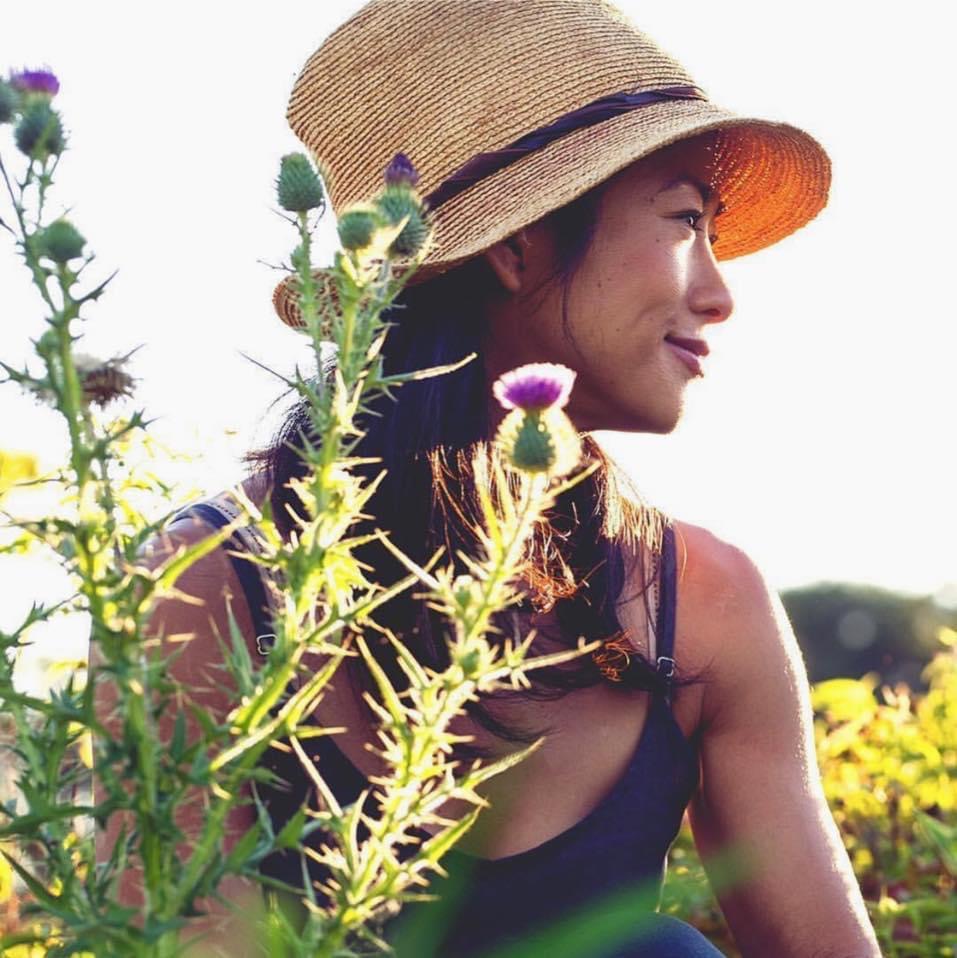
Farming is relatively new to Palisa, but she says despite all the books and the courses out there, she mostly learns from being out on the farm.
“Nature shows you. And the lesson that gets repeated is, the land wants to take over, but it will also throw some gifts to you.”
One recent gift Palisa recalls is her inability to grow tomatoes that culminated in an unseasonable, and unexpected spontaneous crops of Cherokee Rose tomatoes.
Palisa is constantly trying to replicate the specific flavours of native Asian vegetables, grown in Australia. The chillies are spicier, and the herbs have more bite. That’s why seed is so important to the success of the farm and the restaurants.
“In a way, by going forward, we are going back in time.”
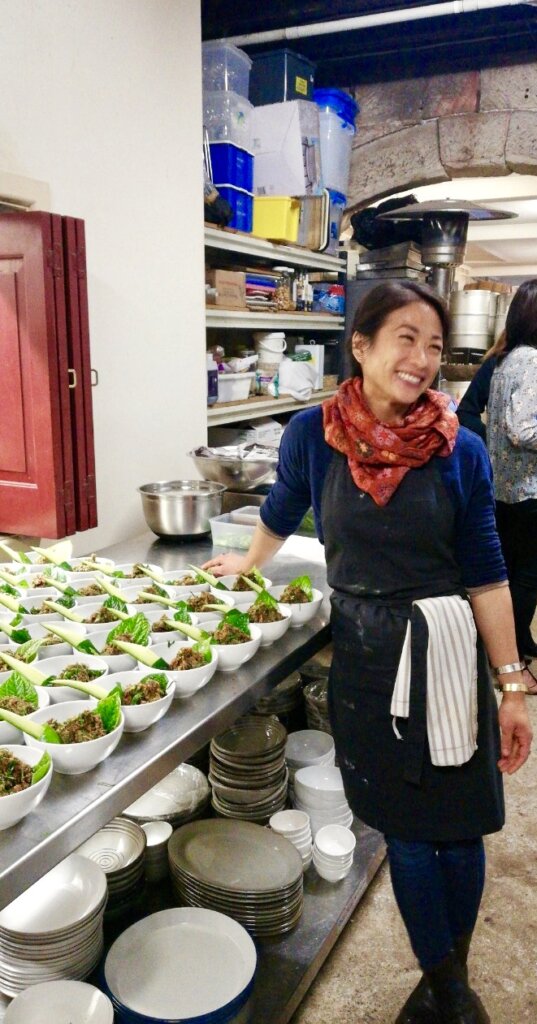
While Boon Luck Farm looks idyllic and perfect, Palisa says it’s not glamorous and she’d love to see governments recognise the work of small farmers.
She wants others to be drawn to this truly special lifestyle if we are to find a solution to feeding the world.
Hear more stories like this by subscribing to the Telling Our Story podcast on iTunes (or wherever you listen to podcasts) and follow podcast host Angie Asimus on Instagram for more updates.


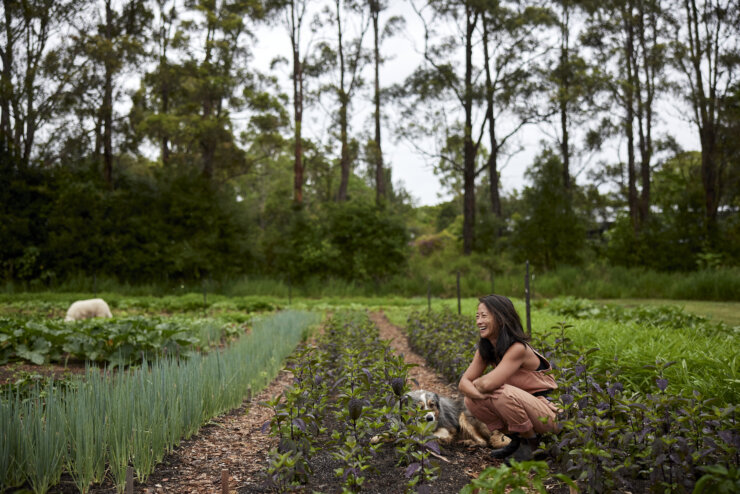
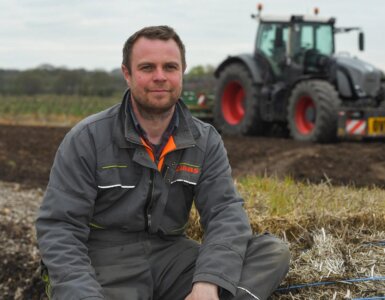
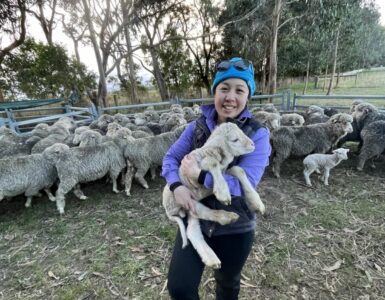
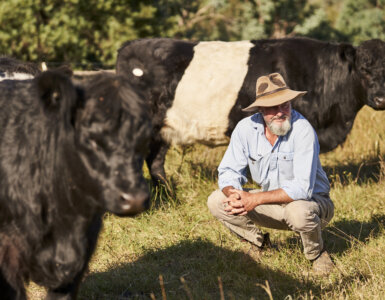






























Add comment